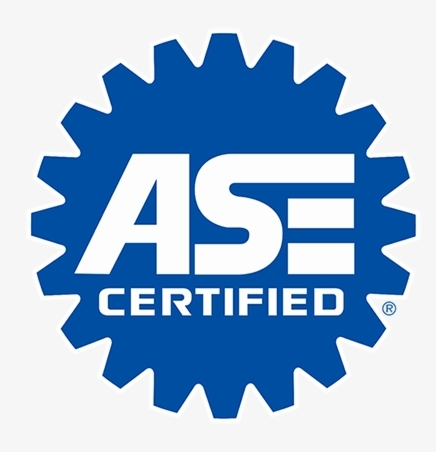The AC system of your vehicle is designed to keep you comfortable when temperature rises. It’s designed to operate quietly, so there should be little to no noise from an air conditioning system that’s in good working order.
While your air conditioner is technically a separate system, it’s tied to the rest of the engine by the serpentine belt. The serpentine belt is what’s responsible for turning the pulley at the AC compressor, and pressurizing the refrigerant lines. The compressor engages/disengages by an electromagnetic clutch.
Squealing sounds are perhaps the most common noises. In this case usually the drive belt is the culprit. Often these belt noises can sound like a bearing failure noise.
It’s tempting, but not recommended to use belt dressing for diagnosis, because it contains oils that can damage the belt eventually.
A worn or stretched out serpentine belt along with a malfunctioning tensioner are some of the problems that can develop with an air-conditioning drive belt. Bad compressor clutch bearings can also make noise. These noises will usually increase when the compressor clutch is engaged. It’s hard to determine the difference between belt issues and compressor problems. Seek professional diagnosis when in doubt. If the belt is old you might want to replace it for maintenance reasons and see if it solves the noise problem.
A buzzing noise from the compressor when the air-conditioning clutch is engaged can be a sign of an overcharged system. This buzzing sound can be caused by liquid refrigerant entering the compressor.
This condition is most common after an air-conditioning service were too much Freon has been added. If this is the case it needs to be corrected as soon as possible because it can damage the compressor.
Knocking sounds while the air conditioner is running can possibly be caused by loose mounting bolts that secure individual air-conditioning components.
If you turn on the AC and immediately hear a rattling noise, there are a few potential causes:
1) Compressor: If your AC compressor is beginning to fail, it can make a rattling noise.
2) Belt: If the serpentine belt is worn, it can slip when the compressor engages, causing noises.
3) Pulley: If the compressor pulley bearings are failing, they can make noises, generally a grinding, roaring or squealing noise.
4) Compressor Clutch: The compressor clutch is a high-wear item, and if it’s worn out, it can create a rattle during operation. Some vehicles can have only the clutch replaced, but some require replacement of both the clutch and compressor.
5) Idler Pulley: It’s possible that the noise is actually from the idler pulley if its bearings are failing. The noise would start when the compressor engages due to the increased load on the engine.
There are many other potential sources of the noise as well. When the AC turns on, it puts the entire engine under a heavier load. This increased load can cause rattles from things like the power steering pump pulley, loose parts (even a loose hood prop rod can rattle under the additional vibrations created by operating your air conditioner).
DISCLAIMER AND RECOMMENDATION
These issues have to be looked at and repaired by an experienced ASE certified auto repair shop and not do the repairs yourself.
Nadia, the owner of Mobile Auto Diagnostics and Repair LLC has 18 years of hands on experience in repairing all kind of vehicles. She has 11 ASE certifications, one of which is an ASE Master Mechanic certification.
Nadia’s auto repair business is by invitation only and is not open to the public. Please contact Nadia by phone or e- mail found on this website.
Nadia accepts cash, checks and/or major credit cards



